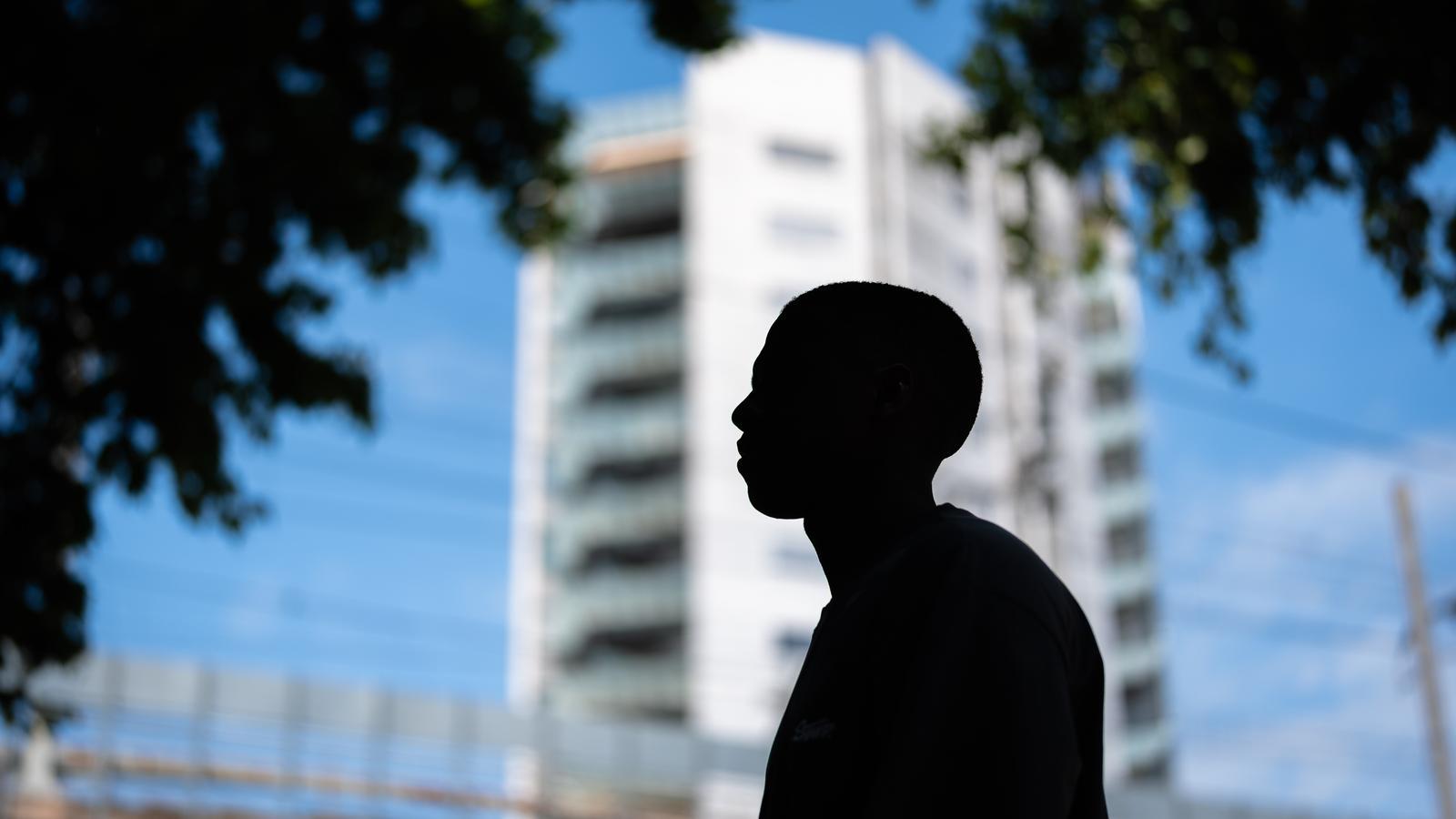Minors expelled from the system by the Prosecutor's Office and the Generalitat win in court
Catalan courts overturn age verification tests carried out on young Gambians that force them to live on the streets


GironaBakary and Lassana were minors, and the Catalan government (Generalitat) caused them to end up on the streets by claiming they were adults. Now, the courts have ruled in favor of the two Gambian boys. The age tests carried out by the Public Prosecutor's Office to determine their age, which led the former Directorate General for Child and Adolescent Care (DGAIA) to expel them from children's centers, were invalid. Lassana and Bakary's are just two cases. But there are many more scattered throughout the region. In the city of Girona, there are already two other court rulings, and in La Garrotxa, for example, there have been about ten in recent months.
"I'm very happy, this is great news! Now I can study and play football! Thanks to everyone who has helped me," Lassana explained, beaming, on Monday after hearing the news, also grateful for the article of denunciation From this newspaper. The solidarity and generosity of the Girona social movement prevented him from ending up sleeping rough. "And when someone sleeps on the street, we start to lose them," says an educator who asks not to be identified for fear of reprisals. There is a lot of fear within the sector.
On December 10, 2024, Lassana was expelled from the La Perdiu center in Figueres. Two Mossos d'Esquadra patrol cars came to get him to remove him from the center, as if he were a young person arrested for some crime. He was 16 years old. His passport said he was 16. But the Prosecutor's Office didn't believe it and said he was an adult. Luckily, the young man found refuge with the family of a childhood friend and for almost a year lived with six other people in a small apartment, contributing to the family's finances with the food the Red Cross gave him. On Tuesday, however, the family he was living with was evicted, and he was left with nothing.
The organization Girona Acull and Lluís Casas, a social worker who met the two boys while working at La Perdiu, helped prevent Lassana from ending up on the streets. They requested that the DGPPIA – the Directorate General for the Prevention and Protection of Children and Adolescents, now the DGAIA – readmit Lassana to a juvenile detention center. Unlike Bakary, who turned 18 this summer, Lassana is still a minor and had the right to this. He ended up back at La Perdiu in Figueres, the same place from which he had been expelled almost a year earlier. For Lluís, it's important that Lassana can stay in the area, as he has friends in Girona and has been able to build a support network. For example, Unió Esportiva Fornells had signed him for one of their youth teams and provided him with every opportunity to do what he loves most: play soccer. Now it remains to be seen whether he can travel to train or if he will have to look for a new team in the Alt Empordà region.
Until the end
For the boys' families, the legal victory feels somewhat futile. This is especially true for Bakary, who will never be able to return to the center and who has managed to weather the storm thanks to an apartment provided by the Girona City Council and the solidarity shown by various groups and individuals. "Now I'm doing athletics, I train every day and go to school in the morning. I love athletics, I want to be a world champion!" the boy explains enthusiastically. "This time, all they've lost, the fact that they were evicted without any alternative housing, who will give it back to them?" asks Núria Rodríguez of Girona Acull. "They've lost practically a year, it's a bittersweet victory," concludes Lluís, who is certain that they must go "all the way" and demand compensation for the young people whom the system evicts by breaking the law.
Because the court rulings to which ARA has had access are clear: the medical tests carried out by the Public Prosecutor's Office are unjustified. In fact, according to the judge in one of these documents, "a legally issued identity document has been submitted to the proceedings, the validity of which has not been questioned or invalidated by any competent body." There are no "signs of manipulation" in the young men's documentation, and therefore it is "authentic." The Public Prosecutor's Office is clinging to the fact that many of these young men present a passport without biometric identification. They are given the tests, and it is determined that they are of legal age. "What legitimacy does Spain have to doubt a Gambian passport? It's a Eurocentric, colonial, and paternalistic view," laments a worker in the sector. The courts state the same: "Gambia issues two types of passports, and both are valid and in force [...] Biometric identification is optional."
This is only the first violation suffered by minors, says Elisenda Xifre, president of the Federation of Entities for the Care and Education of Children and Adolescents (Fedaia). The second is whether the age verification test "sufficiently guarantees rights or could be biased." And there is a third. These are lengthy processes, which can last a couple of years, with children who have language difficulties and are unaware of their rights, and who are not guaranteed "legal assistance," a fundamental right of childhood. If these young people had a lawyer to accompany them during this process, they could "request precautionary measures" and thus avoid—until their case is resolved—being forced out of the system and, in some cases, homelessness.
The role of the DGPPIA
These violations cited by Xifre lead to another debate: the role of the DGAIA (Directorate General for Child and Adolescent Care) versus the position of the Public Prosecutor's Office. "The Prosecutor's Office issues an advisory decree; it has no legal standing, and the DGAIA shouldn't heed it. When in doubt, you must protect the minors," sources within the sector argue. "If you have guardianship of the minors, you have an obligation to protect them; you can say you won't expel them," adds the president of Fedaia. "We don't have clear acceptance from the DGAIA that this is a violation. This would be a first step." In fact, one of the four boys from Girona has ended up in a center in Lleida, and now they want to have his age verified again. Some workers in the sector lament that the Generalitat (Catalan government) acts with varying degrees of vehemence on this issue depending on how strained the system is. If more young people arrive from Africa and there are no vacancies in reception centers, the administration works with the Public Prosecutor's Office to expedite these deportation processes. Conversely, in less tense periods, the process slows down. They also criticize the attitude of the DGPPIA (Directorate General for the Protection of Minors) in court proceedings. "In some cases, even when the minor also had a biometric passport, they still objected," laments Rodríguez, from Girona Acull.
Another criticism comes from within the same sector. "The centers have a responsibility; you can't leave minors in vulnerable situations. You should say, 'I won't turn them away until I have a solution,'" they lament. "Organizations can certainly do more," admits Xifre. "We operate within this ambivalence: having to support these people while simultaneously being subject to someone who is commissioning and paying for this service. You have a double loyalty." The president of Fedaia avoids using the word "blackmail," but admits that the pressure from the administration can be high "during times of great stress."
A reality throughout the territory
During 2024, the Public Prosecutor's Office carried out 356 age verification tests in Catalonia, which determined that the young people, previously considered minors, were adults despite possessing passports stating otherwise—and in more than one instance, also presenting birth certificates. In La Garrotxa, for example, the Social Action Consortium, which works to prevent homelessness, has assisted 36 cases in almost two years. Most of the victims were Gambian, with a few Senegalese. They have appealed 32 of the 36 deportations and have already obtained ten favorable rulings for human rights violations. "We've won all but one case because the young person already had a Spanish Foreigner Identification Number (NIE)," explains a source familiar with the situation in the region.
This year, the First Reception Service of the Alt Empordà County Council has assisted 22 young people expelled from the system after undergoing age verification tests – not all of them came from centers within the region. Of these, they know that at least seven have appealed and one has been readmitted.
All of this makes everyone involved in the sector uncomfortable with the situation these young people face and the role played by both the Public Prosecutor's Office and the Catalan Government itself. "We can't talk a big game about wanting to take them in and then not do it properly," Xifre laments, summarizing the suffering of young people like Lassana and Bakary.
